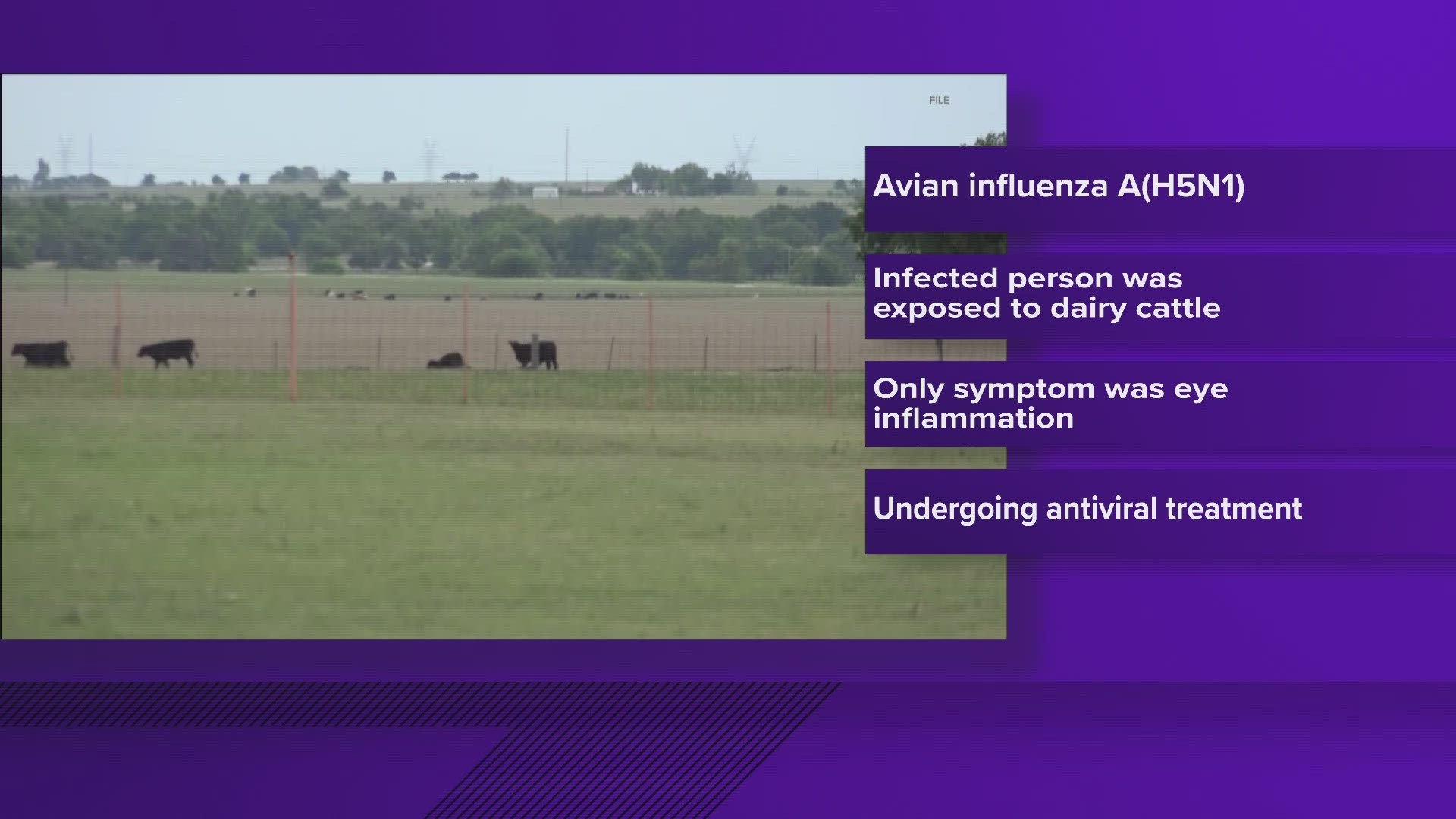TEXAS, USA — One Texan has tested positive for avian influenza A (H5N1) virus, or bird flu. The Texas Department of State Health Services (DSHS) said the case was identified in a person who had direct exposure to dairy cattle presumed to be infected with bird flu.
In late March, the Texas Department of Agriculture confirmed that a strain of bird flu had been going through the Texas Panhandle, leading to questions in the agriculture industry. As of March 25, three dairy farms in Texas had tested positive for bird flu, along with another dairy farm in Kansas.
DSHS said the human patient tested for flu late last week, and the Centers for Disease Control and Prevention (CDC) confirmed the positive test over the weekend. The patient experienced eye inflammation as their only symptom, and they are being treated with the antiviral drug oseltamivir.
According to the CDC, this is the second human case of H5N1 flu in the U.S. and the first linked to an exposure to cattle. However, the DSHS said the case doesn't change the risk for the general public, "which remains low."
What is avian influenza?
Avian influenza A(H5N1) is a type of flu virus that usually infects wild birds and can spread to domestic birds and other animals, according to DSHS. It does occasionally infect people, though it's very rare that it is transmitted from one person to another.
DSHS said initial testing shows the virus hasn't changed in a way to make it more likely to spread among humans.
What is being done to stop the spread of bird flu?
DSHS said it is working with the CDC, Texas Animal Health Commission and other health agencies to investigate the human and cattle cases and to understand how the virus is spreading in order to protect both livestock and the people who work with the animals.
DSHS said the cattle infections don't present a concern for the commercial milk supply because dairies are required to destroy or divert milk from any sick cows. Additionally, pasteurization kills avian flu viruses.
DSHS is providing guidance to the impacted dairy farms about how they can minimize workers' exposure and how people who work with the affected cattle can monitor flu-like symptoms and get tested. The health department said illnesses in people with H5N1 flu infections have ranged from mild, like an eye infection and upper respiratory symptoms, to severe, such as pneumonia and death.
DSHS has also issued a health alert asking health care providers near affected dairies to be vigilant for possible human cases. The department is providing testing and treatment recommendations as well.

